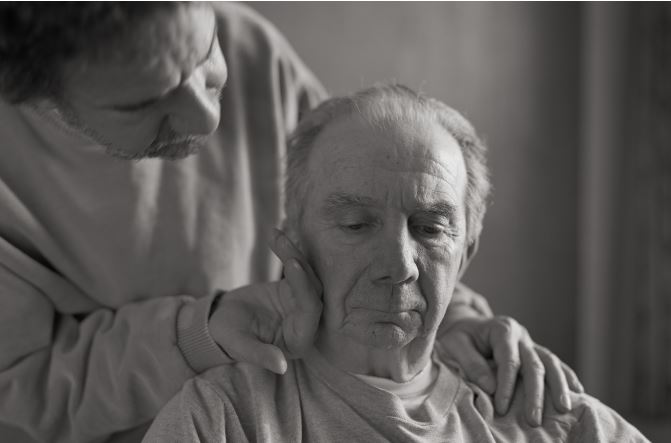How Palliative Care Can Help People with Alzheimer’s Disease and their Families

Palliative care can provide many benefits to people living with Alzheimer’s disease or other dementias, and their caregivers.
“Palliative care is an opportunity for you and your loved one to get a helping hand and make it easier for both of you,” says Doris Phildor, Health Systems Director at the Alzheimer’s Association in New York City.
Understanding Palliative Care and Alzheimer’s Disease
If palliative care is a new or slightly unfamiliar concept to you, you’re not alone. “I think patients and the public in general don’t really know what palliative care is,” says Doris. “It’s especially underrecognized as a resource for people with dementia.”
Palliative care is specialized medical care for people who are living with a serious illness. Palliative care focuses on relieving symptoms like pain and stress, with the goal of improving quality of life for patients and their families and caregivers. For example, a palliative care team can help treat some symptoms that are common in patients with Alzheimer’s disease such as difficulty sleeping, anxiety, and depression. The team can also teach you and your family to recognize potential triggers for some of those symptoms and how to avoid them.
Palliative care can also be provided at any stage of a serious illness like dementia.
If you’re not sure where to find palliative care, it’s offered in hospitals and outpatient clinics—and sometimes even in patients’ homes. You can search for a palliative care program in your area by visiting the GetPalliativeCare Provider Directory.
Learn How to Understand What’s Not Said
Ultimately, palliative care can help preserve the voice of the person with Alzheimer’s by making sure their needs are met. “It’s focused on keeping that person comfortable and making their journey easier,” says Doris. “It’s quality care for people with dementia.”
It can be hard for a person with dementia to tell you what they need. A person with Alzheimer’s may get agitated when they’re in pain because they can’t share or describe what they’re feeling. For example, they might act out because a tooth hurts, or they’re too hot, or their shoes hurt their feet but they can’t just say that.
“That behavior is their attempt at communicating,” explains Doris. “It’s their way to say, ‘I’m uncomfortable, and I need something else.’”
A palliative care team can help you learn how to better understand this type of behavior, as well as to monitor your loved one for changes or evolving needs that might cause them pain or discomfort. They can also help you learn how to ask the questions that will produce useful information so you can help your loved one yourself or get medical treatment for them when necessary.
Caregivers Can Ask for Help
Alzheimer’s disease is a progressive, degenerative illness. So even if you and the person with Alzheimer’s made decisions together earlier in their journey, their health and needs will change over time. It may be hard for you to grapple with these changes. You may be facing some hard decisions, and you might not know how to handle it. You may fear potentially treading on your loved one’s independence—or feel some guilt about speaking up.
A palliative care team is trained to help you navigate this path. They can help you figure out how to make the day-to-day go more smoothly.
“There is no shame in asking for help and asking for guidance,” says Doris. “The conversation can change over time, and you can change your decisions. The goal is to discuss and come to some decisions that are appropriate now.”
Caregivers and family members are also part of the equation. Alzheimer’s caregivers are known to experience high levels of stress and burnout, so palliative care takes their needs and quality of life into account, too.
Learn More
Learn more about how palliative care can help on the Alzheimer’s Disease and Palliative Care page. Watch our video, Dan’s Palliative Care Story, to see how palliative care has helped Dan and his wife and caregiver, Lisl, through his journey with frontotemporal dementia.
